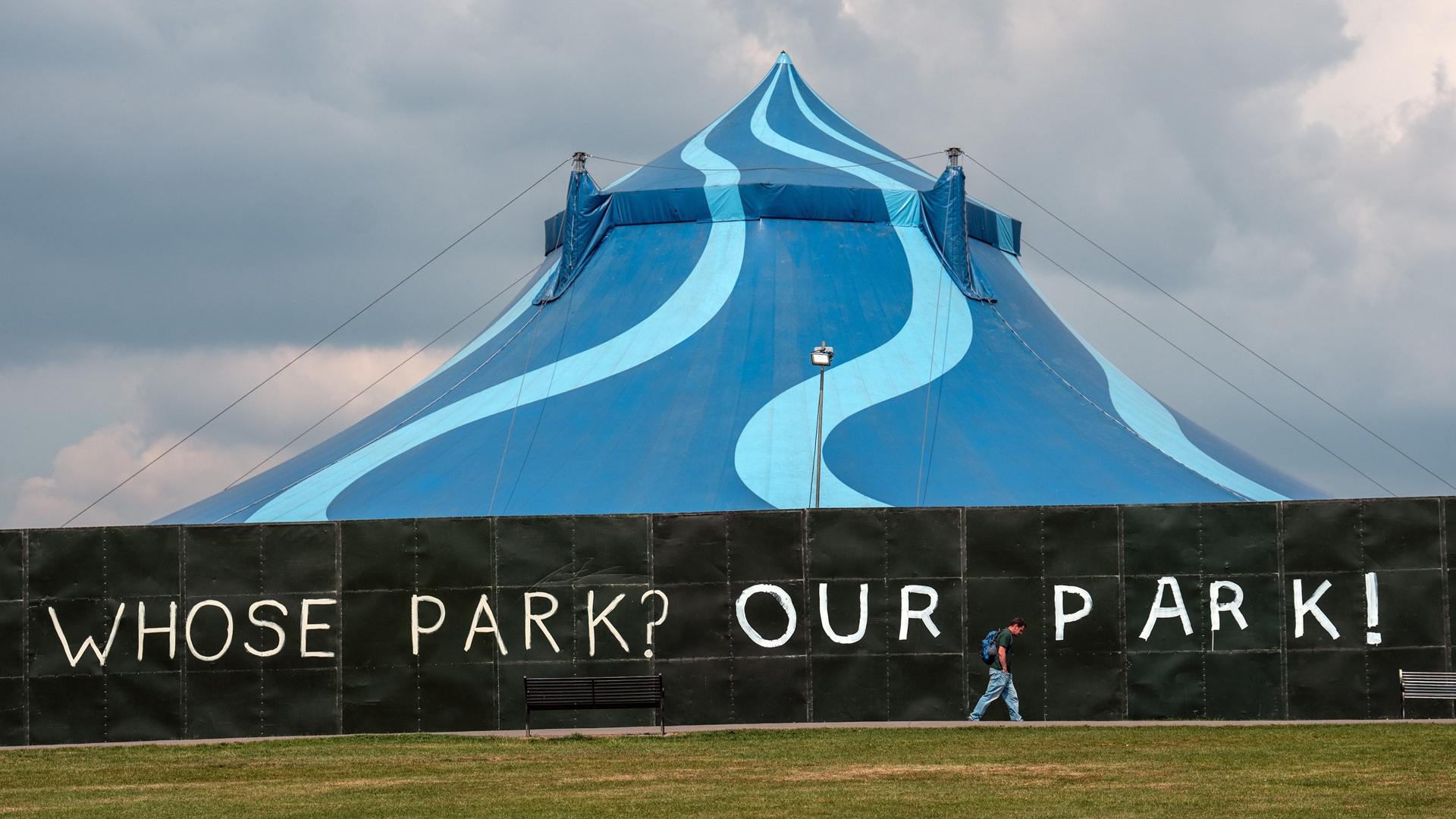When London’s green sanctuaries become private playgrounds, who truly holds the key to public space?
Last month, Brockwell Park underwent its annual transformation from local haven to festival fortress. Surrounded by temporary fencing and housing a swathe of stages and food vans, tens of thousands prepared to descend on the park over a series of weekends.
The beloved patch of greenery has been home to a run of music events for the past few years, each organised by the umbrella organisation Brockwell Live. From Mighty Hoopla to Field Day, these short-stint festivals see Brockwell Park covered in security and crowds for much of the summer – but it’s a shift that many locals are tired of.
Last week, a High Court judge ruled in favour of the Protect Brockwell Park campaign group, which protested the number of ticketed events held on the site. Despite pushback, Brockwell Live has confirmed that their festivals will still ‘go ahead as planned’ this year. But the debate has raised questions around who gets to enjoy public spaces.
Public parks have been a cherished part of British life for centuries. For the Victorians, they represented a ‘commitment to cultivate public good within the public realm,’ and across London, green spaces have long been upheld as shared realms of health, leisure, and democratic congregation.
Some may consider the music festival as an extension of this shared experience, one which makes open space an equally accessible haven for all. But with rising ticket costs and increasingly contentious organisational bodies, these events have placed London’s parks under siege. Across the capital, commercial festivals now occupy a staggering 140 days of the calendar year, a 14% increase since 2024.
The summer views of Brockwell Park. ☹️ Half of it blocked off so council can charge ££s for the wealthier amongst us for festivals. Meanwhile local people, often in gardenless blocks of flats, can suck it up. Their only green space being removed from their use in the summer. 😡 pic.twitter.com/EzxTwtQ6m4
— The Cassandra Centre (@CassandraCentre) May 14, 2024
The steep steel walls erected around locations like Brockwell Park are perhaps the most imposing visualisation of this exclusivity, one which pushes local residents out of the green spaces they’re rightly entitled to.
In Brockwell Park, the scale of the takeover is impossible to ignore. Brockwell Live’s six events – Field Day, Mighty Hoopla, City Splash, Cross The Tracks, Brockwell Bounce and Wide Awake – shut out local residents for a combined 37 days, displacing the free-to-attend Lambeth Country Show (which draws 120,000 visitors every summer) and sidelining local access.
The ecological toll is equally stark: compacted turf, damaged root systems and stressed wildlife are all unable to adapt to the relentless staging activity.
It was precisely these concerns – ecological damage, restricted access and a lack of genuine public consultation – that propelled Protect Brockwell Park to court. In mid-May, the campaign group secured a landmark ruling that quashed Lambeth Council’s initial certificate, finding the approval process ‘irrational’ and procedurally flawed. Yet, the council’s rapid pivot to issue a fresh legal instrument has only intensified the dispute, leaving many locals feeling unheard and powerless.




















